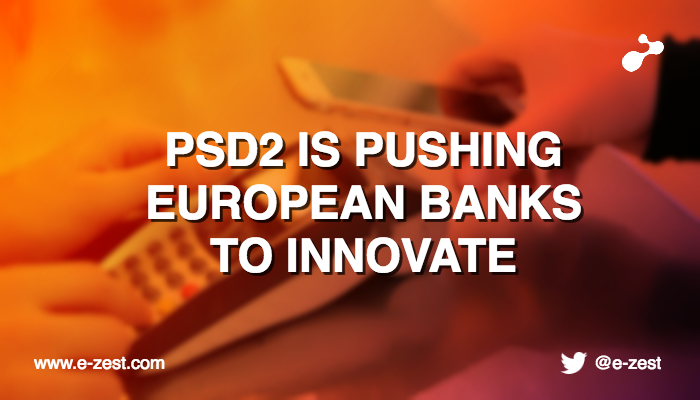
The change that first triggered in 2007 is about to complete the circle soon in the form of Payment Services Directive (PSD2), disrupting how Europeans transact and finances are operated in Europe. Bill Gates once said, "Banking is necessary, banks are not." PSD2 is going to transform the banking sector which is known for regulation, compliances and incumbency.
Banks with their conservative and risk averse nature, particularly after the global slowdown of 2008, need to reinvent themselves in light of the new PSD2.
Original PSD that talked about transactions occurring within Europe only, has expanded its scope with PSD2 to include 'one leg out' transactions.
The thrust to push payment process over traditional card-based pull payments is making a difficult game for the banks.
On one side, banks will have to worry about new security requirements for electronic payments and security challenges to open their systems to AISPs and PISPs through Open APIs and on the other hand, they have to prepare themselves for stiff competition posed by non-banking players who might simply build financial services on top of bank's data and IT infrastructure.
The cost of building open APIs is going to increase IT budgets for banks. The current profitable business models may not exist in post-PSD2 world. The standardization of surcharges across Europe is going to hurt some banks. The list is endless.
Is everything gloomy for European banks then? Definitely not! First and foremost, they are still going to the be the foundation for all financial transactions. Though third-parties are going to build their own systems but those systems are built on bank's API layer. If banks provide value-added services to their existing customers, then they might see an opportunity for increased sales and engagement.
The APIs that expose the banks to the world can use the same APIs to know more about their existing customers to cross-sell and up-sell. Banks can market themselves as financial partner with deep trust levels in domestic market and innovative player offering services built through AISPs and PISPs access of other banks in foreign markets. Though a clear picture of what bank can do and cannot do is yet to be cleared, that doesn't restrict banks from evaluating possibilities or considering a few exciting acquisitions or partnerships with existing non-banking players such as PayPal.
In my opinion, the PSD2 should be looked as an opportunity to break the status-quo and myths that have got formed over decades using technology innovatively. Clarity of customer expectations, creativity in offering new value-added services and customer-centricity while designing new workflows will be the key to innovate for European banks.

